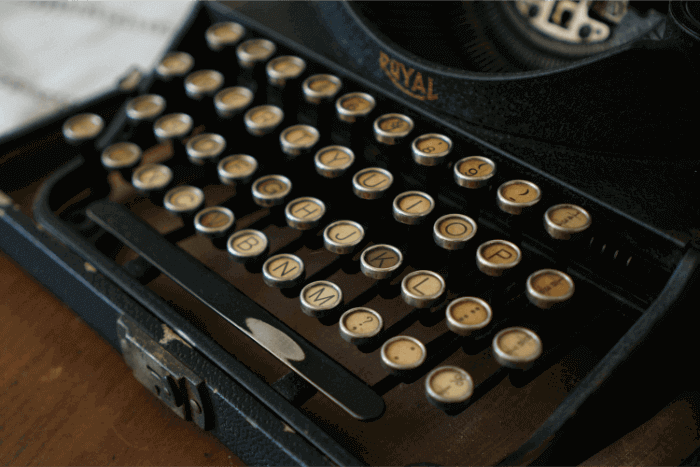Oxford’s Great Writers
For a prospective student of literature or a self-confessed bookworm, there’s nothing quite as humbling as standing in the footsteps of Oxford’s rich alumni of literary giants. From Romantic poets to fantasy legends and pioneers in detective writing, this city holds the secrets of some of the world’s great authors.
This is our selection of the 10 greatest Oxford writers, from the 15th to the 21st century.

1. Philip Sidney (1554-1586)
“Fool,” said my muse to me. “Look in thy heart and write.” (Astrophil and Stella)
The Renaissance, the movement that brought us out of the medieval period and into modernity, came along with a renewed interest in the works of Classical literature. This is what inspired Elizabethan writers like Philip Sidney, an alumnus of Christ Church college.
Sidney, like all great Renaissance men, was a bit of an all-rounder: a poet, courtier, soldier, scholar and author, most notably of The Defense of Poesy (c.1580) and Astrophil and Stella (c. 1580).
2. Jonathan Swift (1667-1745)
“Every man desires to live long, but no man wishes to be old.” (Gulliver’s Travels)
Swift is most renowned for his sharp-tongued satire, a genre that wields irony and parody to undermine the corruption of societies and institutions. Its popularity in Swift’s time was a response to the birth of party politics in 17th century England.
Educated at Hertford College, Swift’s most remembered work is Gulliver’s Travels (1726), where the shipwrecked Gulliver is held captive by a race of tiny people, a story adapted for the screen starring Jack Black.
3. Samuel Johnson (1709-1784)
“A writer only begins a book. A reader finishes it.” (Works of Samuel Johnson)
Samuel Johnson, often referred to as Dr Johnson, attended Pembroke College for just over a year, before leaving due to lack of funds. Despite this, he’s considered one of the most prolific thinkers of his day and earns his place among Oxford’s great writers with his Dictionary of the English Language, published in 1755.
Dr Johnson was a ‘man of letters’, a phrase used to describe a man of literary learning and scholarship. He published an influential annotated edition of The Plays of William Shakespeare (1765) and the Lives of the Most Eminent English Poets (c.1779), cataloguing the biographies of 52 poets.
4. William Morris (1834-1896)
“I determined to do no less than to transform the world with Beauty.” (The Well at the World’s End, Vol. 1)
These days, we can find the work of William Morris adorning our walls, as he’s remembered most fondly as a textile designer in the Arts and Crafts Movement. But did you know that Morris also made his name as a poet and novelist?
Morris studied Classics at Exeter College, and spent a large portion of his life in Oxfordshire. His Utopian novel News from Nowhere (1890) is a reflection of his Marxist politics, envisioning a future based on common ownership and a world without a monetary system.
5. Oscar Wilde (1854-1900)
“The truth is rarely pure and never simple.” (The Importance of Being Earnest)
Once a Classicist at Magdalen College, Wilde’s literary career is often overshadowed by the scandal of his love-affair, his imprisonment in Reading Gaol and consequent death in Paris.
But Wilde’s work defined the literature of the 20th century: his plays like The Importance of Being Earnest (1895), scathingly satirising the lives of the upper classes, The Picture of Dorian Gray (1890) a critique of decadence, and De Profundis (1905) a poetic musing on his own shortcomings make him one of Oxford’s greatest authors.
Interested in experiencing the city of Oxford, famed for its literary history? Learn more about studying at our Oxford Summer School.

6. Katharine Lee Bates (1859-1929)
“Love planted a rose and the world turned sweet.” (Thorn and Rose)
Author, scholar and writer of America the Beautiful, Katharine Lee Bates spent a year studying at Oxford in 1890. This was 30 years before women could actually graduate from the university! Her legacy makes an important addition to the ranks of these prolific male writers.
A keen social reformer, Bates’ 1889 novel Rose and Thorn gave voice to the perspectives of working class women. As a scholar, she helped to establish the academic study of American literature, and mentored, alongside Robert Frost, some of the country’s finest poets.
7. J.R.R. Tolkien (1892-1973)
“It’s a dangerous business, Frodo, going out your door.” (Lord of the Rings)
One of the most important medieval scholars, J.R.R. Tolkien was Oxford’s Rawlinson and Bosworth Professor of Anglo-Saxon from 1925-1945. Tolkien himself taught Old English to Oxford’s English Literature students of the mid-20th century – imagine that! Also, he was a member of the famous Inklings literary group, alongside Oxford writers like C.S. Lewis.
The beloved author of The Hobbit (1937) and The Lord of the Rings trilogy (1954-5), Tolkien drew on his knowledge of medieval languages and ancient cultures to produce this classic work of high fantasy.
8. Agatha Christie (1890-1976)
“Very few of us are what we seem.” (The Man in the Mist)
Dame Agatha Christie is the best-selling novelist of all time, guaranteeing her a place in the list of Oxford’s greatest authors. Her books have sold around 2 billion copies. She lived in Winterbook House, Oxfordshire, from 1934 until her death in 1976.
Christie wrote 66 detective novels throughout her life, pioneering the classic tropes of the murder mystery genre. Her fictional protagonists Hercule Poirot and Miss Marple live on in countless adaptations for stage and screen.
9. Susan Sontag (1933-2004)
“Photographs are a way of imprisoning reality.” (On Photography)
Alumna of St Anne’s College, Susan Sontag’s essays, amongst her novels and her political activism, are regarded today as some of the most important in the genre.
Her ‘Notes on Camp’ (1964) deals with the interaction between high and low art, whilst On Photography (1977) outlines her theory of taking pictures as you travel. In 2012, The New York Review of Books described her as “one of the most influential critics of her generation.”
10. Seamus Heaney (1939-2013)
“Between my finger and my thumb/The squat pen rests./I’ll dig with it.” (‘Digging’)
Nobel Prize winner, Professor of Poetry at both Harvard and Oxford, and certainly one of the great Oxford authors: Seamus Heaney is highly regarded among the world’s best poets. And he is a firm fixture on secondary school English literature curriculums in the UK.
A Northern Irish Catholic, Heaney’s poetry infuses the earthiness of his rural upbringing with the ever-present tension of the Troubles. Nowhere is this better evidenced than in his first-published collection, Death of a Naturalist (1966). In addition, Heaney was renowned for his translations of classic ancient poems, such as his edition of Beowulf (1999).
Next Steps for Aspiring Writers and English Students
- Read more about the best books for english literature students
- Fancy walking in the footsteps of these greats? Check out our literary summer courses in Oxford.
- Planning a trip to Oxford? Why not make a literary map based on this article to guide you around the places where famous writers walked, lived and wrote!
Want to test your own writing skills?
Take a look at our Creative Writing and English Language summer schools based in the heart of Oxford. Where else could you find so much literary inspiration?